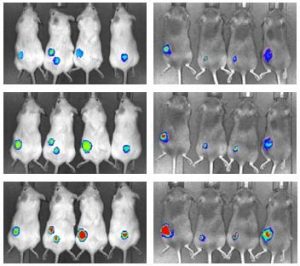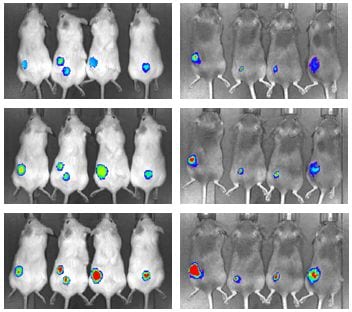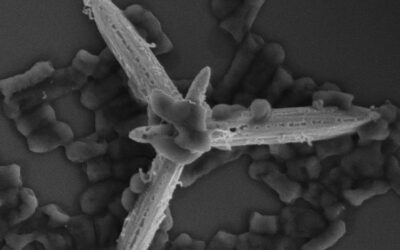Current studies on nanoparticle therapy against cancer can only be published in high quality journals when they include in vivo data. Often, these types of experiments are done in immune compromised mice which are bearing a tumor derived from a standard human cancer cell line. One can regard these types of experiments as a “test tube on legs”, so the experiment just shows that the nanoparticles are active in a cell line within a mouse, instead being active on the same cell line in a cell culture dish. However, this neglects possible effects of an intact immune system towards the tumor.
Stefaan Soenen et al. from Leuven, Belgium, now report in Advanced Healthcare Materials, that the immune system matters with regard to the therapeutical efficiency of silver nanoparticles. A murine squamous cell carcinoma cell line (KLN 205) was implanted in immune-deficient NOD SCID γ mice to realize a xenograft model, and results were compared to the same cell line in a syngeneic tumor model using immune-competent DBA/2 mice. In mice without an immune system, the silver nanoparticles had only a minimal effect on the implanted tumors. In immune-competent mice a clear inflammation reaction was observed after treatment with the silver nanoparticles. This inflammation led to an ongoing antitumoral effect, which resulted in significantly reduced tumor growth.
These results support the understanding that nanoparticles have immunomodulatory properties, which can have a beneficial role in anti-cancer therapy.

















